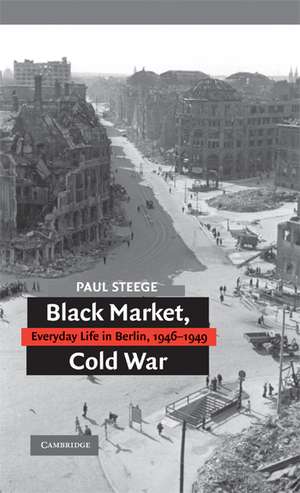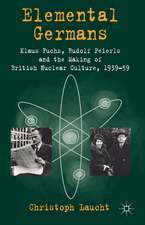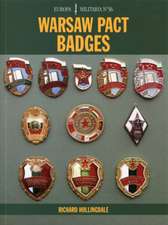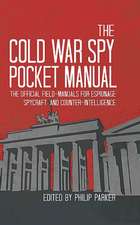Black Market, Cold War: Everyday Life in Berlin, 1946–1949
Autor Paul Steegeen Limba Engleză Paperback – 12 oct 2008
| Toate formatele și edițiile | Preț | Express |
|---|---|---|
| Paperback (1) | 427.76 lei 6-8 săpt. | |
| Cambridge University Press – 12 oct 2008 | 427.76 lei 6-8 săpt. | |
| Hardback (1) | 755.87 lei 6-8 săpt. | |
| Cambridge University Press – 4 mar 2007 | 755.87 lei 6-8 săpt. |
Preț: 427.76 lei
Nou
Puncte Express: 642
Preț estimativ în valută:
81.86€ • 84.57$ • 68.13£
81.86€ • 84.57$ • 68.13£
Carte tipărită la comandă
Livrare economică 25 martie-08 aprilie
Preluare comenzi: 021 569.72.76
Specificații
ISBN-13: 9780521745178
ISBN-10: 0521745179
Pagini: 374
Ilustrații: 1
Dimensiuni: 152 x 229 x 21 mm
Greutate: 0.5 kg
Editura: Cambridge University Press
Colecția Cambridge University Press
Locul publicării:New York, United States
ISBN-10: 0521745179
Pagini: 374
Ilustrații: 1
Dimensiuni: 152 x 229 x 21 mm
Greutate: 0.5 kg
Editura: Cambridge University Press
Colecția Cambridge University Press
Locul publicării:New York, United States
Cuprins
1. Postwar Berlin: the continuities of scarcity; 2. October 1946: rolling back Soviet power; 3. June 1947: Berlin politics in the shadow of the black market; 4. March 1948: Berlin and the struggle for the Soviet Zone; 5. August 1948: battle lines on the Potsdamer Platz; 6. June 1949: ending the blockade.
Recenzii
'Steege's fascinating book is a superb example of 'history from below'. He is not the first historian to have examined the lives of the people of Berlin in this period, but no one has illuminated the interaction between daily life and global politics as effectively as he does.' Journal of European Studies
Notă biografică
Descriere
This book explains how and why Berlin became the symbolic capital of the Cold War.










